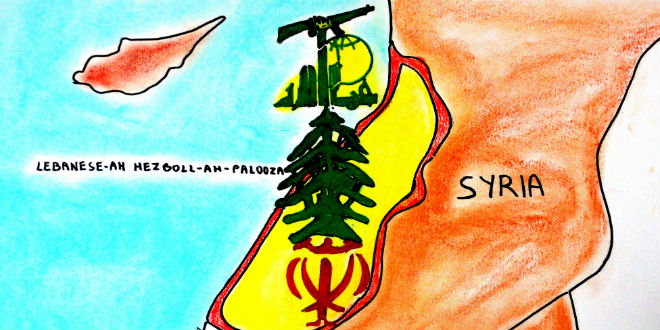Lebanon is in trouble. Tens of thousands of Lebanese have taken to the streets to demonstrate against their government over the economic crisis plaguing the country.
The Lebanese economy is collapsing. First came the war in neighboring Syria, which shattered several major economic sectors, such as trade and tourism, and saw millions of Syrians seek refuge in Lebanon, something that has taken a toll on the country’s fragile economy.
Then came the Persian Gulf states’ ire over the tightening grip of Hezbollah—the Iranian-backed Shi’ite terrorist group—on the country, where it has become a parliament majority. This has prompted Gulf states to bar their citizens from visiting Lebanon or investing money there.
And if that wasn’t bad enough, Lebanon was then hit with U.S. sanctions seeking to stifle Hezbollah financially.
Some causes of the protest are rooted deeper, stemming from the younger generation’s revulsion at the old, corrupt ways characterizing Lebanese politics, which seem to be governed by a handful of politicians and their families, whose behavior is reminiscent of the Mafia’s glory days.
But the protest and unrest will not lead Lebanon anywhere, nor will they breed a new political horizon. As always, the anger of the Lebanese youth will be outweighed by their loyalty to the older generation’s leaders and thus to the familial, tribal and religious foundations of their society and politics—even if the latter is rotten to the core.
Tribal and sectarian animosities have been poisoning Lebanon for decades, perpetuating its existence as a failed state subject to the whims of corrupt crime bosses.
In Lebanon, it makes little difference whether the government falls, as new elections are unlikely to herald any significant political change.
There was a time when this inherent chaos was the source of Lebanon’s strength, as it prevented the country from falling prey to a dictator and afforded its people relative freedom and a flourishing economy.
But those days have passed, and the reality in which there are no robust state institutions has birthed anarchy and a failed economy.
The mass protests sweeping through Beirut are a thorn in Hezbollah leader Hassan Nasrallah’s side. After 20 years of cultivating political power, Hezbollah and Nasrallah are now an inextricable part of the system. This means he cannot escape responsibility for the situation or blame others—especially when Hezbollah’s activity is one of the main causes of Lebanon’s distress.
The organization’s contribution to the undermining of state institutions is well-known, but the fact that it insists on locking horns not only with Israel but also with the Gulf states and the United States is proving to be an adventure Lebanon is unable to weather.
For this reason, Nasrallah has rallied to the side of Lebanese Prime Minister Saad Hariri’s (his nemesis) and called on cooler heads to prevail.
The Lebanese government will most likely survive the current wave of protests, but it will have nothing to offer its agitated people but a bleak future.
Reprinted with author’s permission from Jewish News Syndicate





